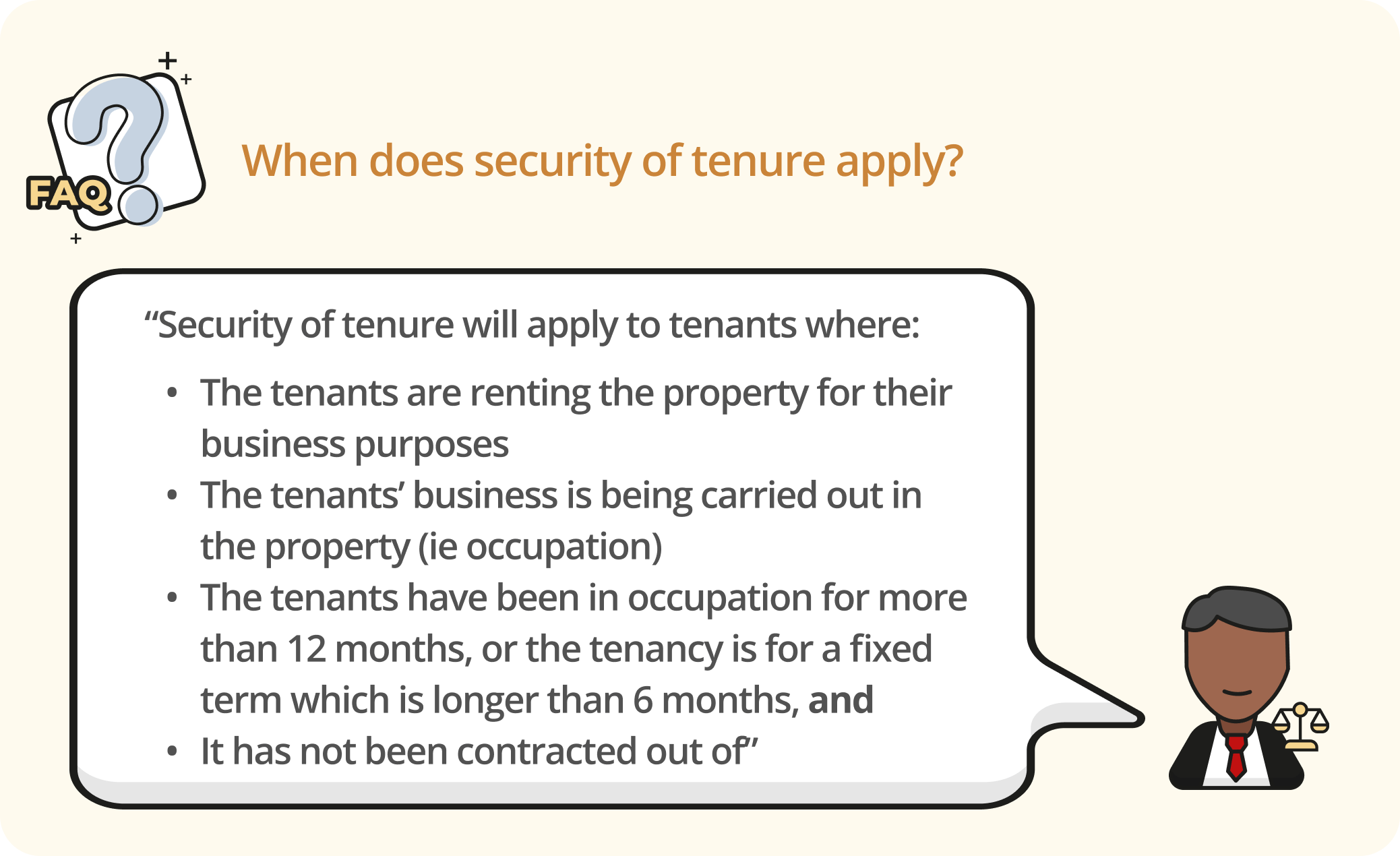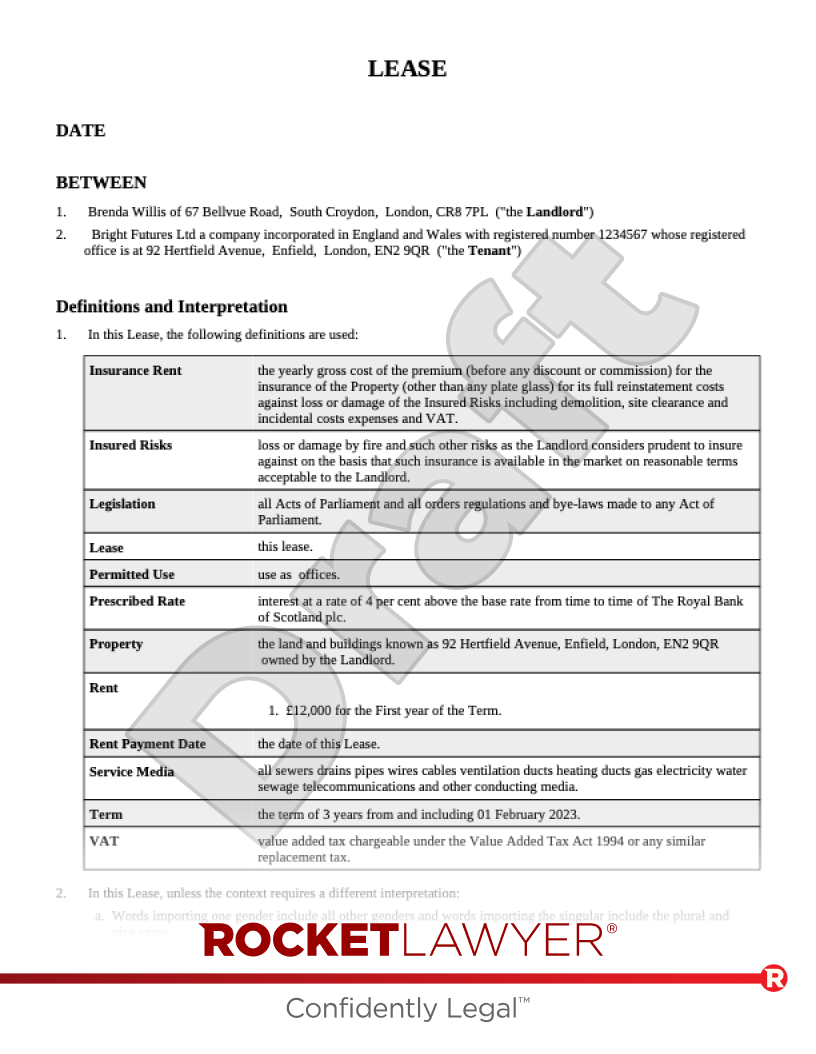What is security of tenure and why is it important to landlords?

The statutory right to renew applies to any lease of premises occupied by a tenant for business use. One way to exclude the statutory right to a new lease is for the parties to agree to ‘contract out’ of the procedure. If not ‘contracted out’ the tenant will have a statutory right to a new lease and the landlord can only refuse to grant a new lease on certain strict grounds. The decision to ‘contract out’ should be made at the start of negotiations between the landlord and the tenant and recorded in the property heads of terms. For more information, read Commercial lease heads of terms.

Under what strict grounds can the landlord refuse to grant a new lease?
The grounds for refusing to grant a new business lease are set out in the Landlord and Tenant Act 1954. The landlord can refuse to grant a new lease where:
-
the tenant has failed to keep the property in good condition or has substantially breached the lease in some other way (eg using the premises for a purpose not permitted in the lease)
-
the tenant has been persistently late in paying the rent
-
the landlord has arranged or can provide suitable alternative accommodation for the tenant
-
the landlord wants to sell the premises as a whole and the tenant occupies part of the premises
-
the landlord wishes to demolish or rebuild the premises (the tenant could remain in occupation if they allowed the landlord access to carry out the work
-
the landlord wishes to use the property for their own business or to live there
For further details, read Renewing and ending business leases.
What happens if the lease is 'contracted out'?
A contracted out lease will come to an end on the expiry date – no notice from the landlord is required.
What happens if the lease is not 'contracted out'?
A lease that is not contracted out will allow the tenant the right to a new lease when the current lease ends. The landlord can only refuse if one of the very strict grounds exists and he may be required to pay compensation to the tenant.
Getting the procedure right
Rocket Lawyer's Commercial lease contains the required wording and, provided that the landlord and the tenant follow the correct procedure, the lease will be contracted out. The procedure to be followed is strict:
-
the landlord must serve a Landlord's notice to exclude security of tenure (warning notice)
-
in response, the tenant must sign a simple declaration or a statutory declaration - a Tenant's agreement to exclude security of tenure can be used for this
The procedure varies depending on the length of time between agreeing to the lease and allowing the tenant into the property:
-
less than 14 days before the lease is completed the landlord must serve a warning notice on the tenant and the tenant must complete a statutory declaration
-
14 days or more before the lease is completed the landlord can serve the warning notice and the tenant responds with a simple declaration
-
if there is more than one tenant the landlord’s warning notice must name them all and it must be served on all of the tenants individually
-
once the landlord’s warning notice is served the landlord cannot make any changes to the lease without having to serve a new warning notice
The most favourable procedure is for the tenant to swear a statutory declaration, as this must be done in the presence of a solicitor who will explain the procedure to them and advise them on the implications of entering into a lease that is excluded from the security of tenure provisions.
What happens if the notice procedure is not followed?
The landlord’s warning notice must be served and the tenant’s simple declaration or statutory declaration must be completed before the tenant is given access to the property. If not, the tenant could argue that their occupation has given them additional rights and if successful at court, the tenant may have gained security of tenure.




